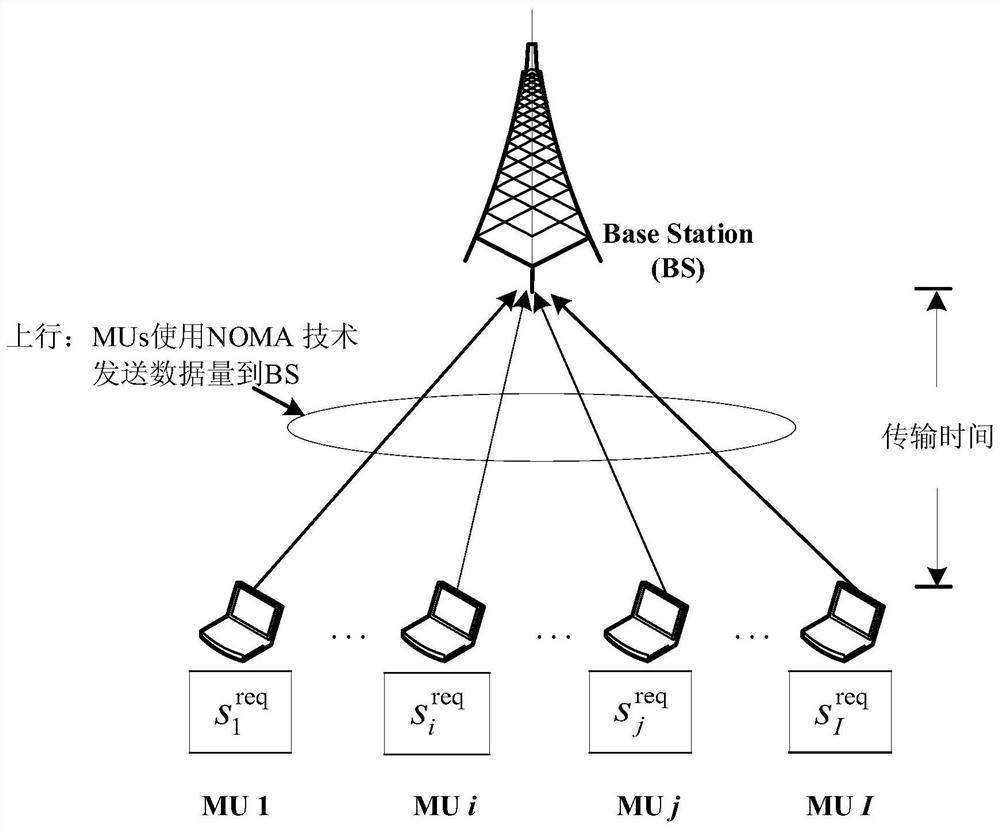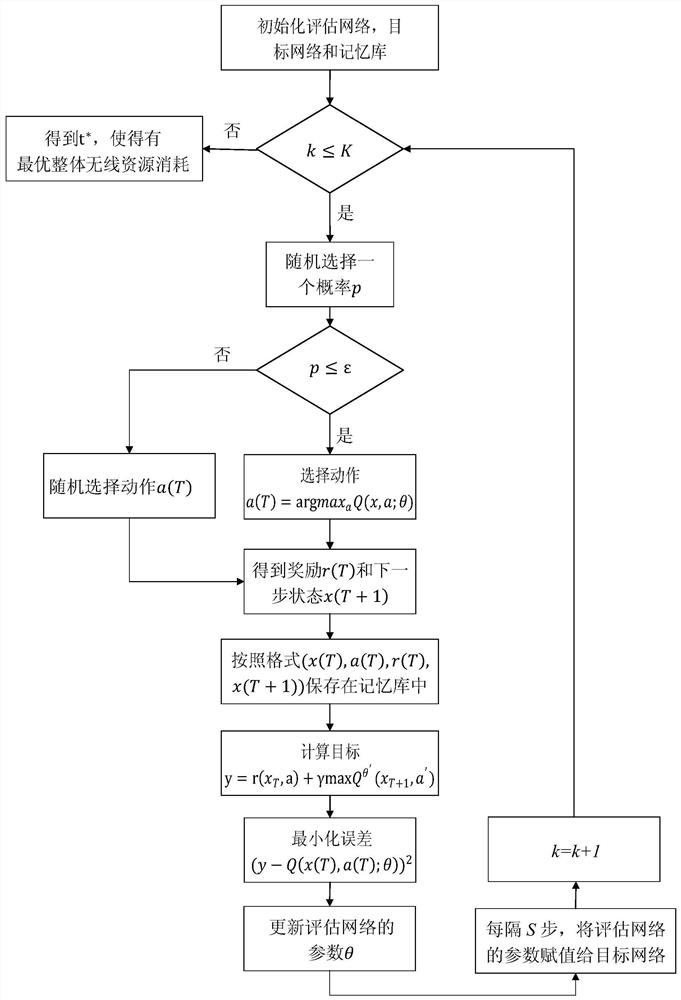Non-orthogonal access uplink transmission time optimization method based on deep reinforcement learning
A transmission time and reinforcement learning technology, applied in the field of communication, can solve the problems of high total energy consumption of mobile users, excessive uplink transmission time, long uplink transmission time, etc., achieve high-quality wireless network experience quality, and improve system transmission efficiency.
- Summary
- Abstract
- Description
- Claims
- Application Information
AI Technical Summary
Problems solved by technology
Method used
Image
Examples
Embodiment Construction
[0054] The present invention will be described in further detail below in conjunction with the accompanying drawings.
[0055] refer to figure 1 and figure 2, a non-orthogonal access uplink transmission time optimization method based on deep reinforcement learning, the implementation of this method can minimize the uplink transmission time and the total energy consumption of all mobile users under the condition of ensuring that the data volume of all mobile users is sent at the same time , improving the wireless network experience quality of the entire system. The present invention can be applied to wireless networks, such as figure 1 in the scene shown. The optimization method designed for the problem mainly includes the following steps:
[0056] (1) There are a total of 1 mobile users under the coverage of the base station, and the mobile users use the set Indicates that mobile users use non-orthogonal access technology to send data to the base station at the same tim...
PUM
 Login to View More
Login to View More Abstract
Description
Claims
Application Information
 Login to View More
Login to View More - R&D
- Intellectual Property
- Life Sciences
- Materials
- Tech Scout
- Unparalleled Data Quality
- Higher Quality Content
- 60% Fewer Hallucinations
Browse by: Latest US Patents, China's latest patents, Technical Efficacy Thesaurus, Application Domain, Technology Topic, Popular Technical Reports.
© 2025 PatSnap. All rights reserved.Legal|Privacy policy|Modern Slavery Act Transparency Statement|Sitemap|About US| Contact US: help@patsnap.com



